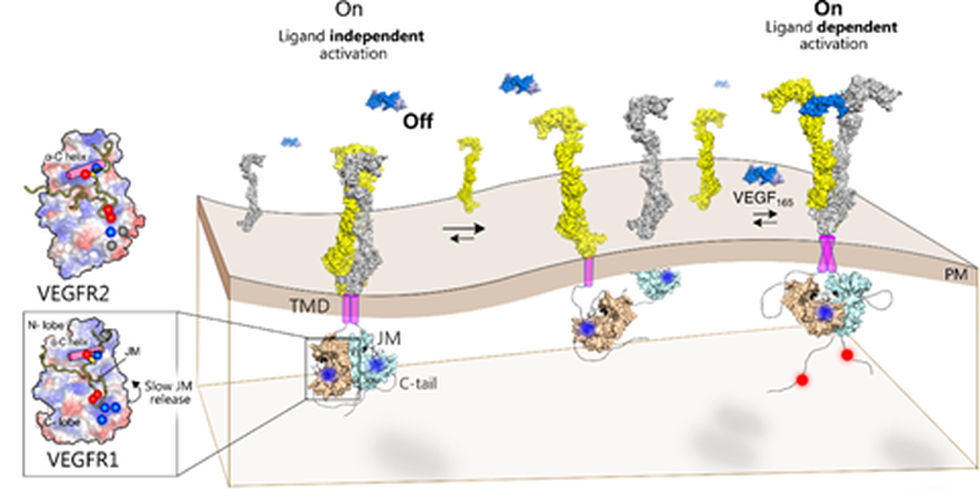About Vascular Endothelial Growth Factor Receptor (VEGF):
- It is a key regulator of physiological angiogenesis during embryogenesis, skeletal growth and reproductive functions.
- VEGF has also been implicated in pathological angiogenesis associated with tumors, intraocular neovascular disorders and other conditions.
- The biological effects of VEGF are mediated by two receptor tyrosine kinases (RTKs), VEGFR-1 and VEGFR-2.
- The VEGFR family of receptors is the key regulator of the process of generating new blood vessels.
Highlight of the research
- The researchers were intrigued by the fact that two members of family VEGFR 1 and VEGFR 2 behaved quite differently.
- While VEGFR 2, the primary receptor regulating process of formation of new blood vessels, could be spontaneously activated, without its ligand, the other member of the family VEGFR 1 cannot be spontaneously activated even when overexpressed in cells.
- It camouflages as a dead enzyme VEGFR1 and binds with ten-fold higher affinity to its ligand VEGF-A than VEGFR2.
- This ligand binding induces a transient kinase (speeding up chemical reactions in the body by an enzyme) activation.
